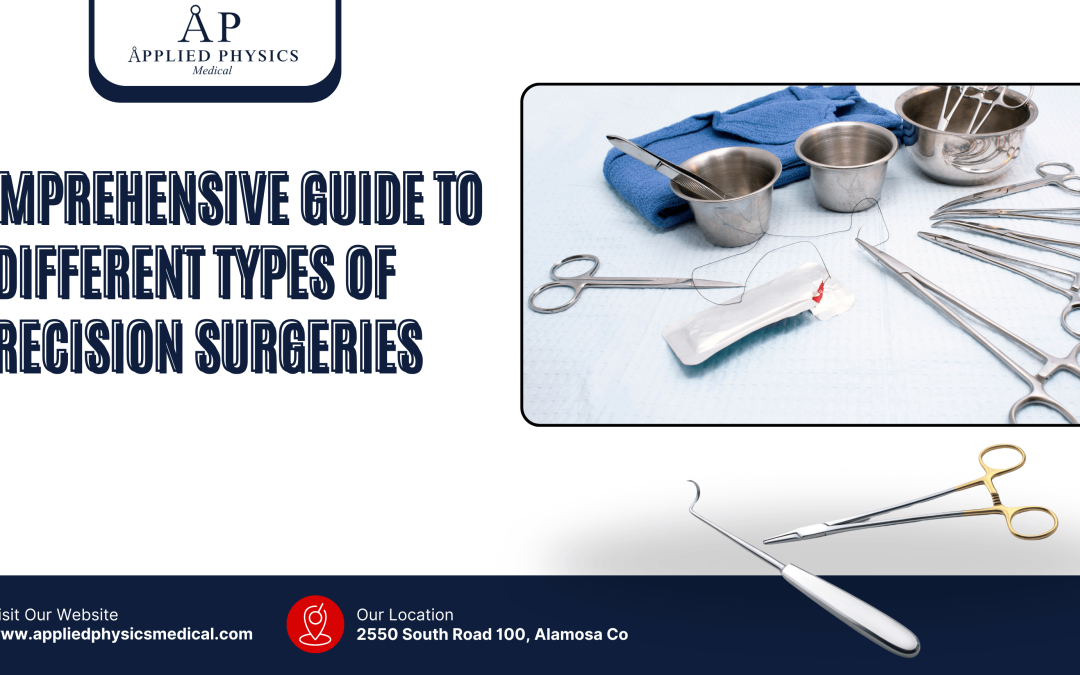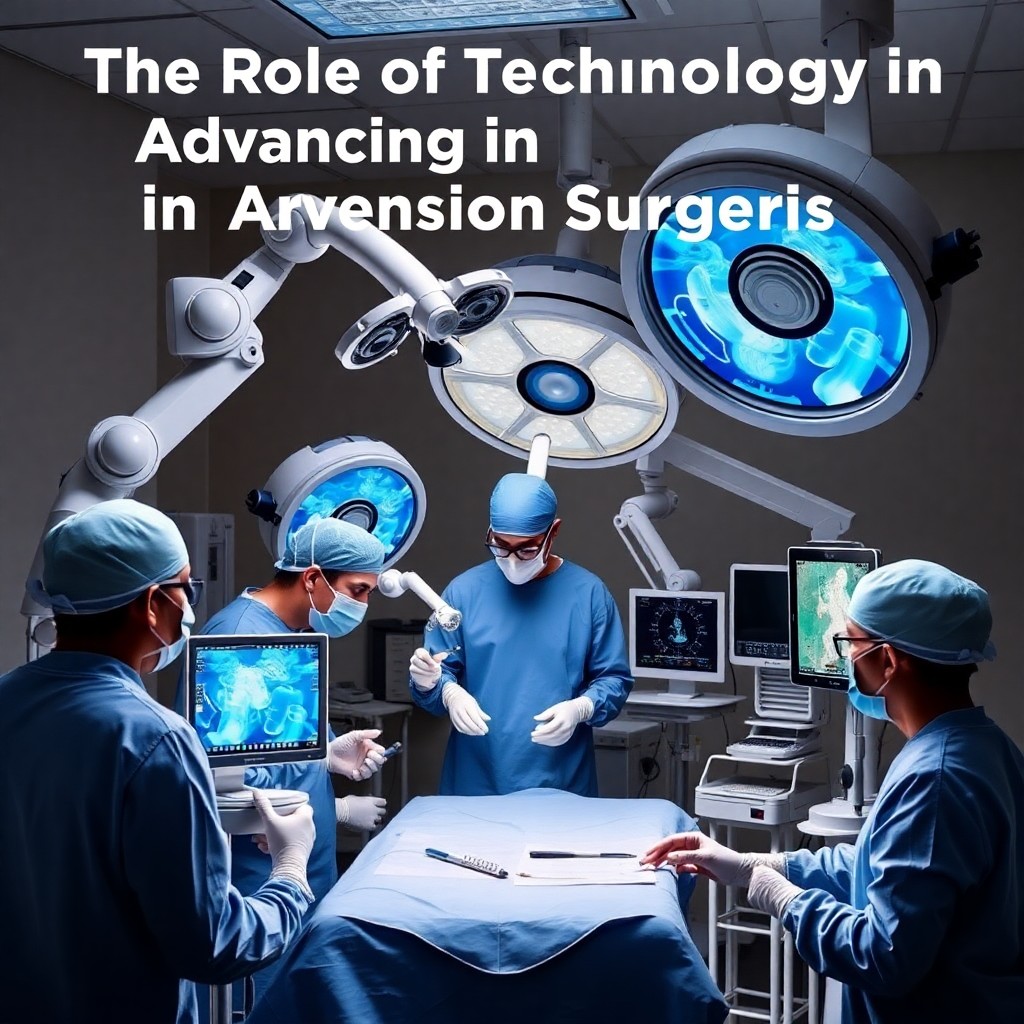Introduction
Precision surgeries, often referred to as minimally invasive or targeted surgeries, represent a significant advancement in the field of medicine. These procedures are characterized by their ability to precisely target affected areas while minimizing damage to surrounding tissues. This approach not only enhances the surgical outcome but also reduces recovery time and postoperative complications.
The evolution of precision surgeries has been driven by advancements in imaging technologies, robotic systems, and surgical techniques, allowing surgeons to perform complex procedures with greater accuracy and control. The concept of precision surgery is rooted in the idea of tailoring medical interventions to the individual characteristics of each patient. This includes considering factors such as genetic makeup, disease stage, and overall health.
By personalizing surgical approaches, healthcare providers can improve the effectiveness of treatments and enhance patient satisfaction. As a result have gained traction across various medical specialties, including oncology, orthopedics, and cardiology, where targeted interventions can lead to better outcomes.
Key Takeaways
- Precision surgeries are a specialized form of surgery that utilizes advanced technology and techniques to target specific areas with high accuracy.
- There are various types of precision surgeries, including robotic surgery, laparoscopic surgery, and image-guided surgery, each with its unique applications and benefits.
- Advantages of precision surgeries include smaller incisions, reduced risk of complications, and faster recovery times, but limitations such as cost and accessibility should also be considered.
- Patients considering precision surgeries should take into account factors such as the expertise of the surgical team, potential risks, and the availability of advanced technology.
- The future of precision surgeries looks promising, with ongoing advancements in technology and techniques leading to improved outcomes and expanded treatment options in modern healthcare.
Types of Precision Surgeries and Their Applications
Introduction to Laparoscopic Surgery
One notable example of precision surgery is laparoscopic surgery, which involves making small incisions and using specialized instruments to perform operations within the abdominal cavity. This technique is commonly used in procedures such as gallbladder removal and hernia repair.
Benefits of Precision Surgeries
The benefits of precision surgeries, such as laparoscopic surgery, include reduced pain, shorter hospital stays, and quicker recovery times compared to traditional open surgeries. These advantages make precision surgeries an attractive option for patients undergoing various medical procedures.
Robotic-Assisted Surgery and Its Advantages
Another significant type of precision surgery is robotic-assisted surgery, which utilizes advanced robotic systems to enhance the surgeon’s capabilities. This method is particularly effective in delicate procedures such as prostatectomies and cardiac valve repairs. The precision offered by robotic systems allows for greater dexterity and visualization, enabling surgeons to navigate complex anatomical structures with ease. Additionally, robotic-assisted surgeries often result in less blood loss and lower rates of infection, further underscoring their advantages in modern surgical practice.
Future of Precision Surgeries
As technology continues to evolve, precision surgeries will likely become even more prevalent and effective in treating a wide range of medical conditions. With their numerous benefits and advantages, precision surgeries are poised to play a significant role in shaping the future of healthcare.
Advantages and Limitations of Precision Surgeries
The advantages of precision surgeries are manifold. One of the most significant benefits is the reduction in trauma to the body. By utilizing smaller incisions and targeted techniques, patients experience less postoperative pain and a lower risk of complications such as infections or scarring.
Furthermore, the shorter recovery times associated with these procedures allow patients to return to their daily activities more quickly, which can lead to improved quality of life. However, are not without their limitations. The complexity of these procedures often requires specialized training and expertise, which may not be available in all healthcare settings.
Additionally, the high costs associated with advanced technologies and equipment can pose a barrier to access for some patients. Moreover, while can be highly effective for certain conditions, they may not be suitable for all patients or all types of diseases, necessitating a thorough evaluation by healthcare professionals.
Key Considerations for Patients Considering Precision Surgeries
| Consideration | Description |
|---|---|
| Accuracy | Precision surgery should offer high accuracy in targeting the affected area. |
| Risk | Patients should be aware of the potential risks and complications associated with the procedure. |
| Recovery Time | Understanding the expected recovery time and post-operative care requirements. |
| Cost | Evaluating the cost of precision surgery and potential insurance coverage. |
| Long-term Outcomes | Considering the long-term benefits and potential impact on overall health. |
For patients contemplating precision surgeries, several key considerations should be taken into account. First and foremost is the importance of thorough communication with healthcare providers. Patients should feel empowered to ask questions about the procedure, potential risks, and expected outcomes.
Understanding the rationale behind choosing a precision approach over traditional methods can help alleviate concerns and foster trust in the medical team. Another critical factor is the patient’s overall health status and medical history. Certain comorbidities or anatomical variations may influence the suitability of precision surgery for an individual.
Therefore, a comprehensive preoperative assessment is essential to determine whether a patient is an appropriate candidate for these advanced techniques. Additionally, patients should consider the availability of follow-up care and support systems post-surgery, as these can significantly impact recovery and long-term success.
The Role of Technology in Advancing Precision Surgeries
Technology plays a pivotal role in the advancement of precision surgeries. Innovations such as high-definition imaging systems, 3D visualization tools, and augmented reality have transformed how surgeons plan and execute procedures. These technologies provide enhanced visualization of anatomical structures, allowing for more accurate targeting during surgery.
For instance, intraoperative imaging can help surgeons navigate complex cases by providing real-time feedback on their progress. Moreover, robotic surgical systems have revolutionized many surgical specialties by offering unparalleled precision and control. Surgeons can perform intricate maneuvers with enhanced dexterity while minimizing trauma to surrounding tissues.
The integration of artificial intelligence (AI) into surgical planning and execution is also on the rise, with AI algorithms assisting in predicting outcomes and optimizing surgical techniques based on patient-specific data.
Precision Surgeries: A Look at the Future of Medical Treatment
Personalized Medicine and its Impact on Surgical Practices
Emerging fields such as personalized medicine are likely to influence surgical practices significantly. By integrating genetic information into treatment planning, surgeons may be able to tailor interventions even more closely to individual patient profiles, potentially improving outcomes further.
Telemedicine and Increased Accessibility
Additionally, advancements in telemedicine may facilitate remote consultations and preoperative assessments, making precision surgeries more accessible to patients in underserved areas.
The Future of Surgical Precision and Patient Care
As technology continues to evolve, we can expect to see even more innovative approaches that enhance surgical precision while prioritizing patient safety and comfort.
The Importance of Precision Surgeries in Modern Healthcare
In modern healthcare, precision surgeries represent a paradigm shift towards more effective and patient-centered care. By focusing on minimizing invasiveness while maximizing therapeutic benefits, these procedures align with the broader goals of improving patient outcomes and enhancing quality of life. As healthcare systems increasingly adopt precision medicine principles, the role of precision surgeries will likely expand across various specialties.
Furthermore, the emphasis on individualized treatment plans underscores the importance of collaboration among multidisciplinary teams in healthcare settings. Surgeons, oncologists, radiologists, and other specialists must work together to develop comprehensive strategies that leverage the strengths of precision surgeries. Ultimately, as our understanding of diseases deepens and technology advances, precision surgeries will continue to play a crucial role in shaping the future landscape of medical treatment.
Conclusion
Precision surgeries have revolutionized the medical field, offering targeted and minimally invasive solutions for various conditions. These surgeries use advanced technologies like robotics, laser, and image-guided systems to enhance accuracy and outcomes. The main types include robotic surgery, laparoscopic surgery, and laser surgery, each with unique benefits tailored to specific medical needs. Overall improves recovery times, reduces risks, and enhances patient satisfaction.


